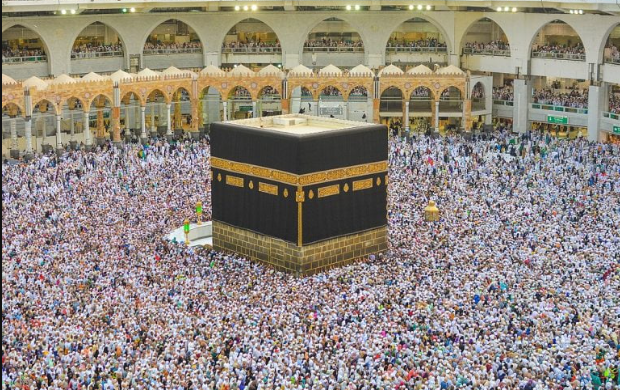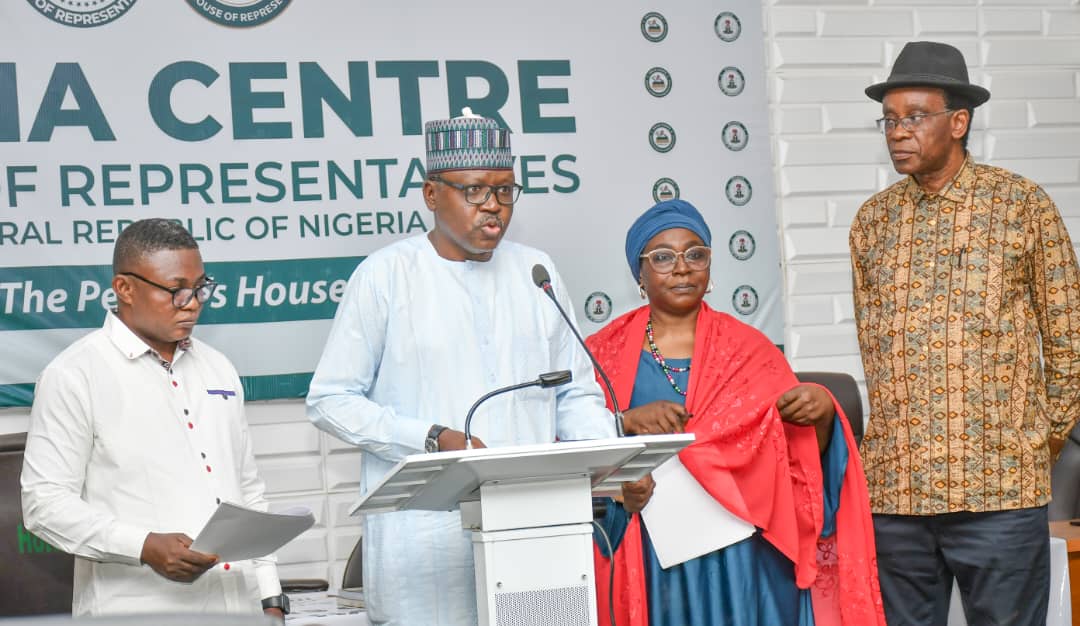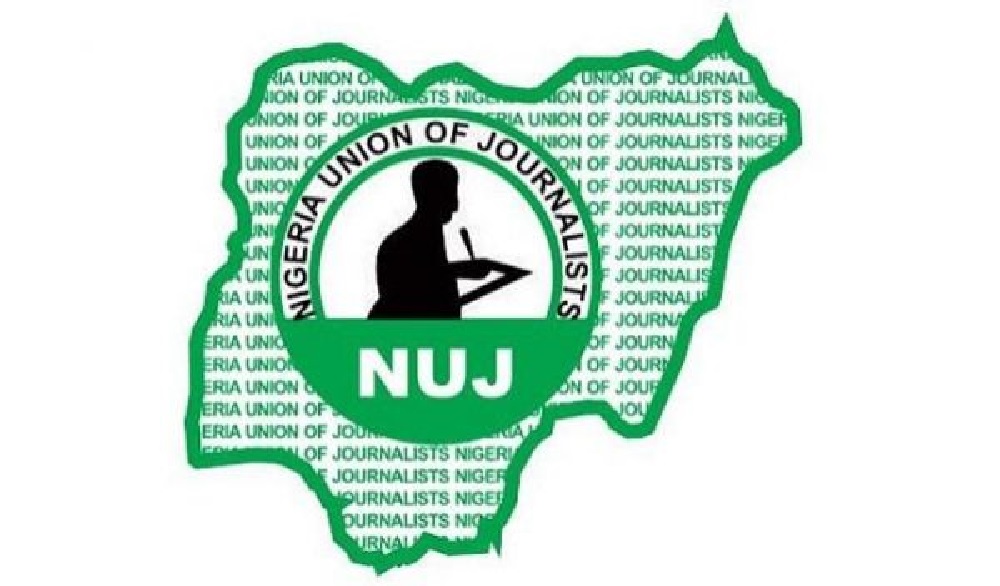News
FG under fire over N90bn Hajj subsidy

The Federal Government has come under fire for its recent decision to subsidise the 2024 Hajj with N90 billion despite allocating only N50 billion for the student loan scheme in the 2024 budget.
Education and legal experts have slammed the decision, noting that spending such a humongous amount of money to subsidise Hajj is a misplacement of priority.
Representing President Bola Tinubu at the flag-off of the inaugural airlift for the 2024 Hajj exercise at Sir Ahmadu Bello International Airport, Birnin Kebbi, on Wednesday, Vice President Kashim Shettima disclosed that the president had ordered the N90 billion subsidy for the 2024 Hajj.
The VP said the president took this initiative given the economic situation of Nigeria, urging the intending pilgrims to pray for peace, unity, and progress in the country.
Did you know a tribe that digs up corpses, dresses them for celebration?0:00 / 0:00
Shettima said, “Mr President is committed to this year’s Hajj due to the economic situation. He has contributed N90bn billion to subsidise this year’s Hajj exercise to ensure a smooth and successful operation.
“You may recall that this year, we had a major challenge in announcing the final Hajj fare for the 2024 Muslim pilgrimage due to fluctuations in foreign exchange rates.
“President Bola Tinubu also works round the clock to control the downward spiral of our local currency to bring relief to our pilgrims and other Nigerians.
“A move that eventually succeeded in lowering the fare. The president approved the release of N90 billion to subsidise the cost of pilgrimage for this year’s Hajj,” the VP stated.
Recall that a directive by the National Hajj Commission of Nigeria had asked pilgrims to pay an additional N1.9m balance in accordance with current foreign exchange rates, before the deadline of March 29, 2024.
NAHCON, in a statement signed by the Assistant Director of Public Affairs, Fatima Usara, in March 2024, explained that late and non-remittances of fares pushed the commission beyond the deadline given by the Saudi Ministry of Hajj and Umrah, noting, however, that the government intervened by appealing for cost reductions.
Speaking in separate interviews with Sunday PUNCH, stakeholders within the education and legal sectors lambasted the Federal Government for the huge subsidy on religious pilgrimage, saying it reflects the government’s gross insensitivity to the prevailing mass hunger, rising poverty, and wanton underdevelopment afflicting education in the country.
They described the Federal Government’s move as a brazen misplacement of priority.
Former Vice-Chancellor of Dominican University, a Catholic-based institution in Ibadan, Professor Hyginus Ekwuazi, described the Hajj subsidy as a gross misplacement of priority given the wobbling state of the Nigerian economy and the depreciating revenue-generating capacity of the government.
Speaking with Sunday PUNCH, he said, “It is not just that it is the Hajj, it is that they are channelling the money into where it should not go at all. Whether it is even the Christian pilgrimage or the Muslim pilgrimage, it is wrong and a crass misplacement of priority.
We are all looking forward to the day the government will be able to channel its resources to the right areas, where there is demand. Certainly and most certainly, that won’t be a pilgrimage. It will be education, health, and social welfare. Those are the three cardinal issues.
“What will happen next is that the government will try to balance it by putting some amounts into the Christian pilgrimage. So we are looking at the two together. Let’s just not say it is Islamic or for Muslims alone. The implication again is that we already have a wobbling economy. The government is now taking money that is a scarce commodity and putting it where it is unnecessary as it will not address the common good. So the implication is negative.”
Also speaking with our correspondent, the National President of the Academic Staff Union of Universities, Prof. Emmanuel Osodeke, said the union would holistically look at all pilgrimages sponsored by the government and issue a statement afterward.
“We, as a union, don’t want to be involved in any religious matters. Now, they have paid for Hajj, and I know that they are also giving to all other groups for pilgrimage. But we, as a union, will look at all of them holistically before making our statement known,” the ASUU chair told Sunday PUNCH.
Reacting to the issue, a Senior Advocate of Nigeria, Chief Awa Kalu, urged the Federal Government not to get involved in religious matters because it is not its duty to subsidise religious programmes.
“It’s been discussed for some years now that government should not get involved in pilgrimage or religious matters. I support this. If you want to go on a pilgrimage, gather your money and go. It should not have anything to do with the government,” he stated.
Human rights lawyers have also knocked the Federal Government for the religious subsidy.
Speaking with Sunday PUNCH, a human rights lawyer, Festus Ogun, noted that the Federal Government’s decision reflects both a constitutional and moral aberration as it is not the legal responsibility of a government to subsidise religious pilgrimage because it is a personal affair.
He stated, “The government of Nigeria has no business sponsoring Hajj or Christian pilgrimage. That is not the business of the government. The majority of our people are wallowing in abject poverty and tattered penury. Religion is a personal issue. So the government should not have any business with it. Imagine a country that is wallowing in abject poverty, whose citizens can barely feed, now subsidising pilgrims to Mecca or Jerusalem? I think it is a clear waste of people’s resources and a case of misplaced priority.
“We just have to be very sincere to ourselves. What is the government’s business with sponsoring people who want to go to Hajj? How does that contribute to national development? How does that solve the hunger crisis in the country? How does it solve the insecurity crisis in the country? So I think the subsidy and allocating such a wanton amount of money is reckless and does not reflect the reality of our people.”
Another human rights lawyer, Pelumi Olajengbesi, said the decision showed that the Federal Government is unserious and does not care about the sufferings of the Nigerian masses.
“It shows that the Federal Government is very unserious. Given all we are going through in this country, that is unfair and a decision that is against the people’s interest. That money can build and establish 90 industries in Nigeria. If you take one billion each to build industries, we will have 90 industries. It is a lot of misplacement of priority.
“This is a wake-up call that Nigeria’s system of electing leaders needs to change. It is a shame and abuse. It shows those of us in positions of authority don’t care about Nigerians and they are not as religious as you think. They are doing it for political patronage,” he opined.
Speaking in a similar vein, another lawyer, Malcolm Omirhobho, said the Federal Government’s move is unconstitutional and symptomatic of the political class’s quest to continuously weaponise the widespread poverty in the country for selfish gains.
He stated, “The Federal Government subsidy of the cost of pilgrimage for this year’s Hajj is illegal, unlawful, and unconstitutional. Section 10 of the 1999 constitution of Nigeria (As Amended) provides that ‘the government of the Federation shall not adopt any religion as a state religion’. Using the literal rule of interpretation, it is clear that the lawmakers intended that the Federal Government or any of its 35 state governors must not take Islam, Christianity, African traditional religion, or any other religion as a state religion.
“This by implication makes Nigeria a secular state. The legislative mischief of section 10 of the 1999 constitution is against the establishment of religion by law and it is intended to erect a wall of separation between religion and the Nigerian government.
“So subsidising pilgrimage for any religion is a violation of section 10 of the Nigerian constitution. Nigeria is a country of over 200 million people with different religious beliefs so for the Nigerian government to use public funds to subsidise pilgrims for Muslims and Christians is discriminatory to African traditional worshipers and Nigerians of other religious beliefs. This is also a violation of section 42(1) of the 1999 Nigerian Constitution (As Amended).
Credit: PUNCH
News
Civil Society Groups Urge FG To Halt Oil Asset Divestments in Niger Delta

The Coalition of Civil Society Organizations (CSOs) has called on President Bola Tinubu and the National Assembly to stop all ongoing and planned divestments of oil assets in the Niger Delta region by oil companies.
This demand was outlined in a petition titled “Urgent Call to Halt All Divestment in the Niger Delta, Including Shell’s Refused Sale of SPDC Shares”, addressed to President Tinubu on December 16, 2024, and Speaker of the House of Representatives, Rep. Tajudeen Abbas on December 18, 2024.
During a press briefing in Abuja, Mr. Isaac Botti, Programmes Coordinator of Social Action Nigeria, and Reverend Nnimmo Bassey, Founder of Health of Mother Earth Foundation (HOMEF), highlighted the severe environmental and social impacts of oil exploration in the Niger Delta. They stated:
“We are here as representatives of Nigerian society organizations, community leaders, and concerned citizens to address a grave and urgent issue that threatens not only the people of the Niger Delta but the environmental and economic interests of Nigeria and the social future of all Nigerians”, he said.
The Coalition expressed concern over the divestment process by International Oil Companies (IOCs), particularly Shell’s proposed sale of its remaining shares in the Shell Petroleum Development Company (SPDC) to the Renaissance consortium, as well as similar moves by companies like TotalEnergies.
They warned that these actions could undermine national interests and exacerbate environmental damage in the region.
The Coalition detailed extensive damage caused by decades of oil exploration, including:
- Water Contamination: High levels of hydrocarbons in water sources have rendered them unsafe for drinking.
- Soil Degradation: Continuous oil spills have destroyed farmlands, threatening food security.
- Biodiversity Loss: Entire ecosystems have been decimated by oil spills.
Citing reports by the United Nations Environment Programme (UNEP) and the Bayelsa State Oil and Environment Commission (BSOEC), the Coalition provided alarming statistics. UNEP revealed benzene levels 900 times above safe limits in Ogoniland, while chromium levels in Bayelsa were over 1,000 times higher than World Health Organization (WHO) standards.
The BSOEC estimated it would cost at least $12 billion to remediate Bayelsa over 12 years, with a broader cleanup across the Niger Delta requiring $100 billion. Comparatively, the Deepwater Horizon oil spill in the U.S. saw BP pay $60 billion for damages from a single incident.
The Coalition emphasized that past divestments by Shell, ENI/AGIP, and ExxonMobil have left unresolved environmental liabilities:
- Shell’s sale to Aiteo in Nembe resulted in worsening pollution without proper cleanup efforts.
- ExxonMobil and ENI/AGIP similarly failed to ensure adequate environmental management post-divestment.
These cases have set a troubling precedent of IOCs avoiding accountability for environmental degradation.
The Coalition urged the federal government and the National Assembly to take immediate action by:
- Halting all IOC divestments until historical environmental liabilities are addressed.
- Ensuring inclusive consultations with host communities before divestments.
- Mandating that Shell, TotalEnergies, and other IOCs fund cleanup and remediation efforts.
- Upholding the regulatory independence of the Nigerian Upstream Petroleum Regulatory Commission (NUPRC).
- Creating an Environmental Restoration Fund to support long-term remediation.
They also demanded profit-sharing opportunities for host communities and the inclusion of gas flaring cessation in divestment agreements.
The Coalition stressed that approving Shell’s SPDC share sale without addressing environmental and social liabilities would undermine Nigeria’s sovereignty and well-being.
“Approving Shell’s or TotalEnergies’ divestment in its current form without addressing the profound environmental and social costs would be a grave injustice to the people of the Niger Delta and could lead to significant unrest in the region.”, it stated.
The Coalition reaffirmed its commitment to ensuring environmental justice and called on President Tinubu and the National Assembly to prioritize the welfare of Nigerians over corporate interests.
News
NUJ-FCT Council Commiserates With Emmanuel Fateman Over the Loss of Wife

News
Reps Debate 2025 Budget Estimates, Demand Better Allocation for Security, Agriculture

-

 News22 hours ago
News22 hours agoLawmaker laments over 2023, 2024, 2025 budget running in one circle
-

 News22 hours ago
News22 hours agoVideo: Tinubu Arrives Lagos, Meets Old ‘Friend’ Papa Ajasco
-

 Sports22 hours ago
Sports22 hours agoI Failed In Front of the World Four Years Ago — Lookman’s Touching Speech After Winning CAF Award
-

 Economy22 hours ago
Economy22 hours agoUK inflation rises further ahead of Bank of England rates decision
-

 News22 hours ago
News22 hours agoLagos Mosque Takes Down ‘Jesus Christ is Not God’ Banner After Backlash
-

 News14 hours ago
News14 hours agoLeadership crisis rocks office of AGF, may delay payment of Dec salary
-

 News22 hours ago
News22 hours agoTinubu, Oborevwori Distribute Cash, Rice, Medical Supplies To Elders In Delta
-

 Economy21 hours ago
Economy21 hours agoDangote Refinery, NNPCL resume fight over $1bn loan








